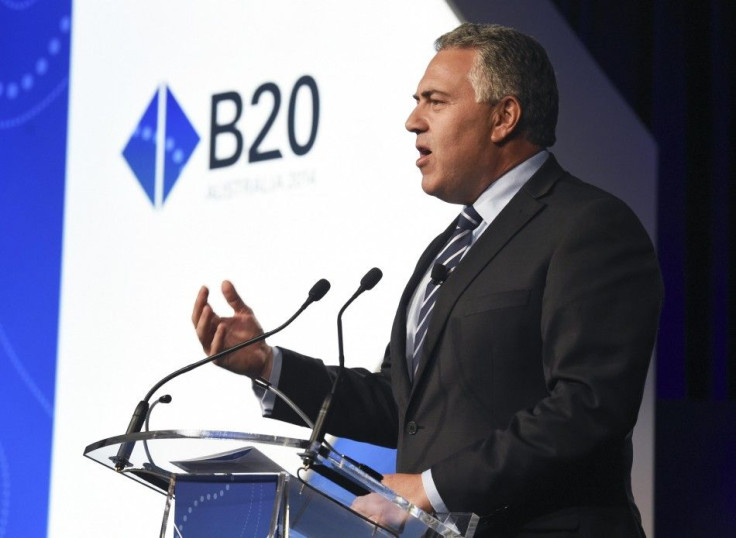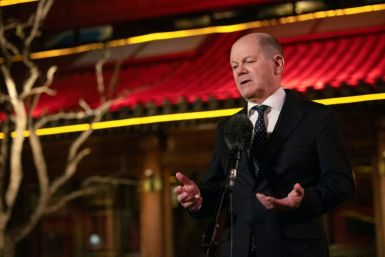Joe Hockey Says Australia Needs To Return To Surplus Amid Risk Of AAA Rating Downgrade

Australian Treasurer Joe Hockey admits the country could lose its AAA credit rating unless the federal budget returns to surplus. A surge in interest rates for households is expected will no longer have its triple-A rating.
Two weeks from releasing Australia’s second budget, Hockey also criticised the U.S. and the Obama administration for efforts to oppose scrutiny of multinational companies on tax avoidance. The Treasurer agreed that Australia’s budget was “certainly unsustainable” and there was a risk that a credit downgrade might be on the horizon.
“If we don’t get back to surplus, if we don’t get back to the point where the Australian government is living within its means, then there is a risk to our credit rating, and it does flow through to the banks in the form of higher costs and inevitably higher interest rates for every day Australians,” said Hockey in the program 891 ABC Adelaide Breakfast.
He said Australia should return to the point where people were living within their means. Hockey added that Australia has to borrow $100 million every day to “pay our bills” and this has become unsustainable over the medium and long term.
Deutsche Bank had warned that Australia would post 15 years of consecutive budget deficits, reports The Australian. Hockey said he wouldn’t say it was going to be 15 years but he was not going to put a timeline on the expected deficit.
The Treasurer said the challenge in the budget for the medium term is not all about revenue and tax. Hockey explained that in order to reduce expenditures, the government needs help from the Labor party since 86 percent of government spending is held up in legislation. He remarked that the Labor Party and Greens control the Senate.
Hockey has ruled out any further cuts from the international aid budget and said the Coalition has done what it can to generate savings in foreign aid. He also accused Washington of “imposing taxes on worldwide activity.”
Robert Stack, the U.S. Treasury’s top international tax official, warned against Australia entering an agreement with Britain to target tech companies based in the U.S. “We understand that governments are under pressure to raise revenue and it must be tempting to target non-residents,” said Stack.
He said the fact that a company has substantial sales outside of the U.S. does not necessarily mean the “value-generating activities” originated from that country, reports Australian Financial Review. However, Hockey reiterated that whether it’s a U.S. or Australian company, it has to pay tax in Australia if it earns money in the country.
(To report problems or leave feedback on this article, contact: r.su@ibtimes.com.au)






